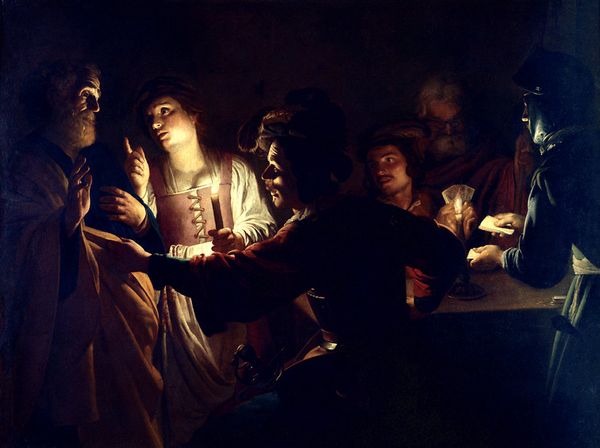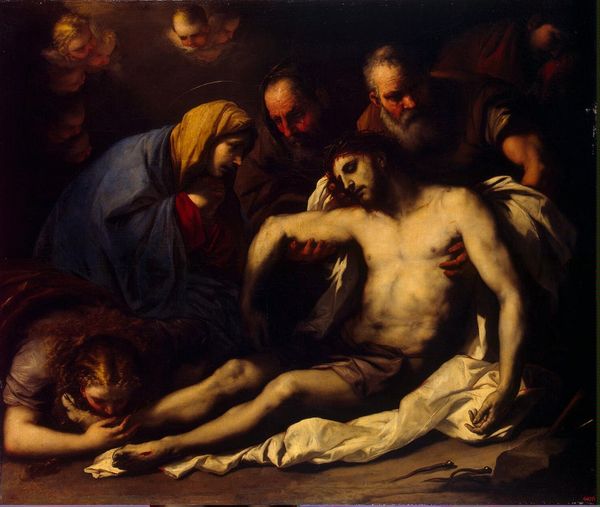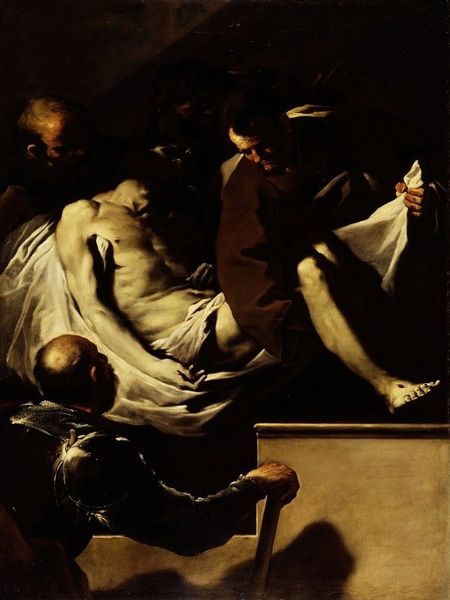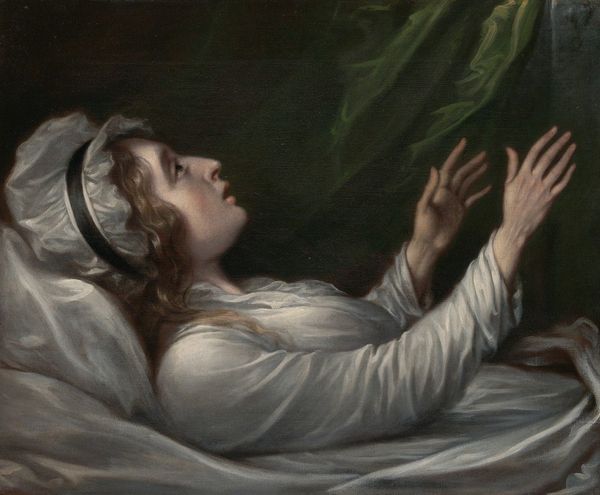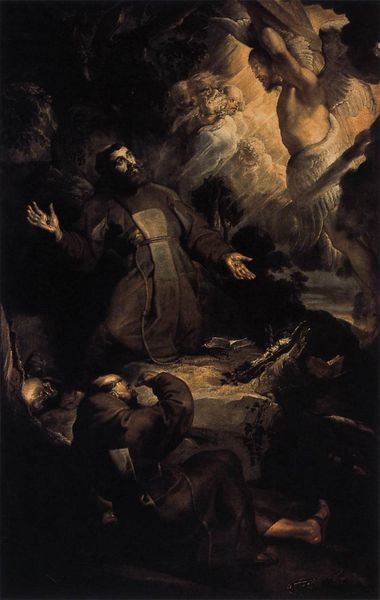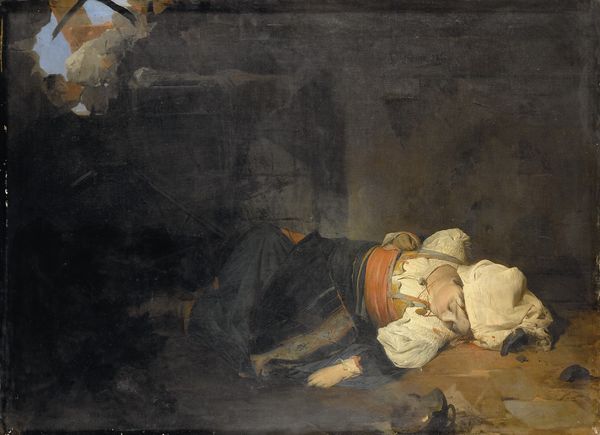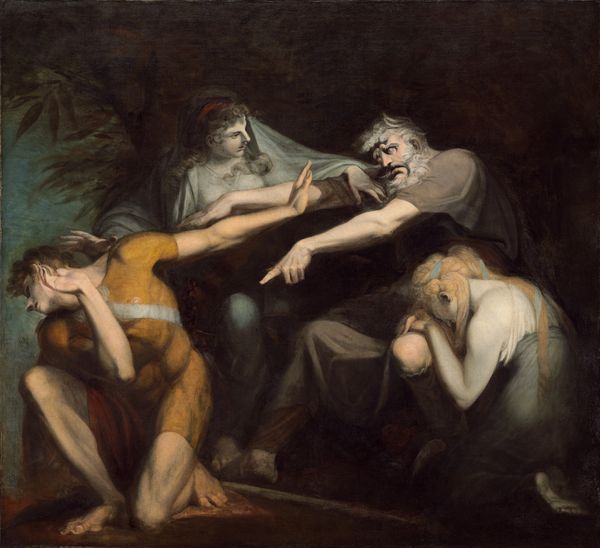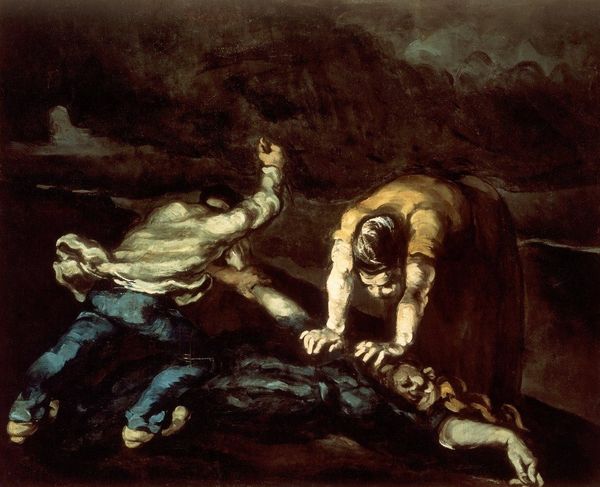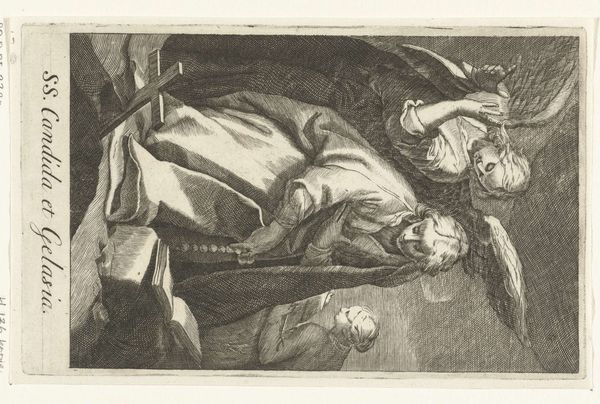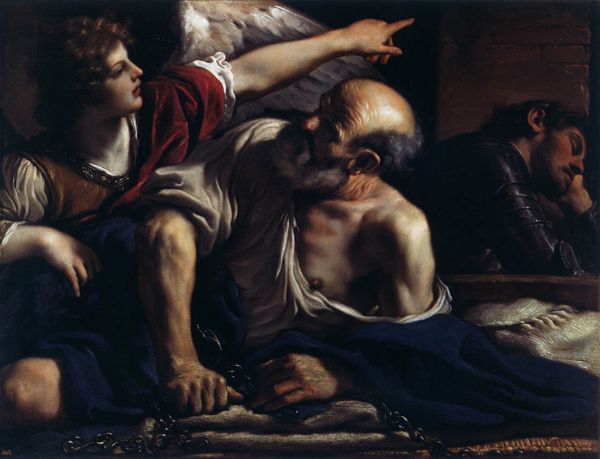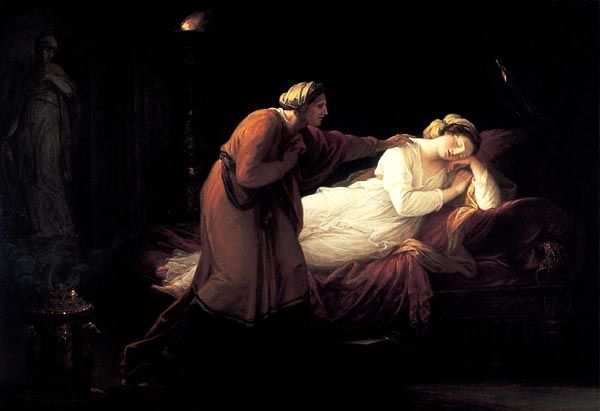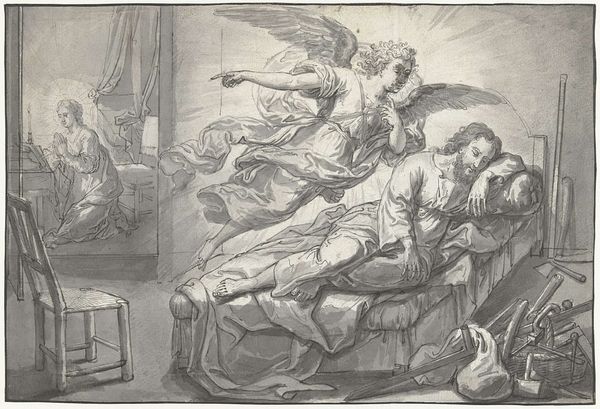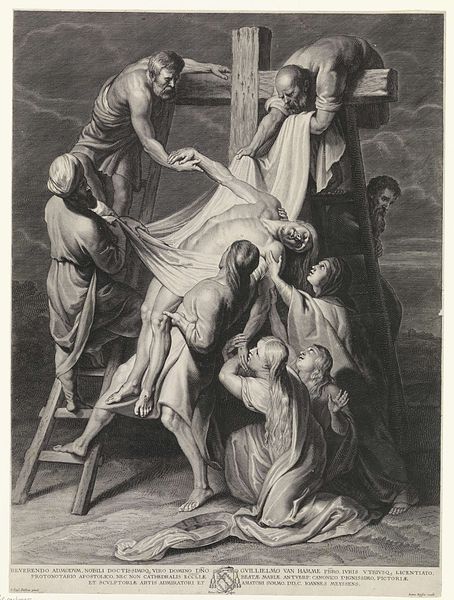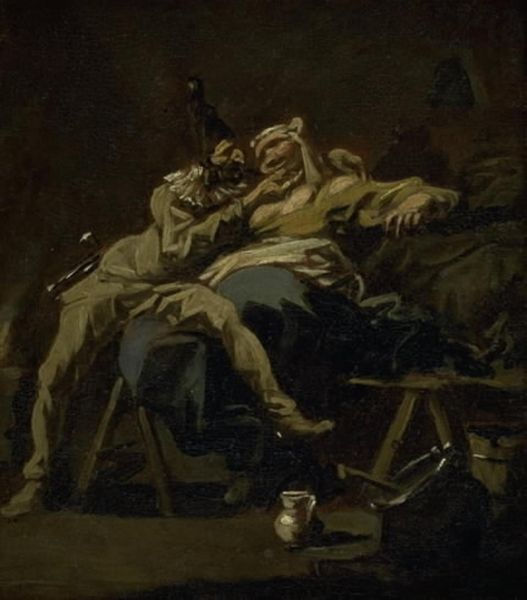
Copyright: Public domain
Curator: Here we have Henry Fuseli’s "'Macbeth', Act I, Scene 3, the Weird Sisters" painted in 1783 using oil paint. The work depicts the famous scene from Shakespeare’s Macbeth, showing the witches as they await Macbeth and Banquo. Editor: My first impression? Foreboding. And cramped. The tight composition forces us into the witches' space. It feels claustrophobic. Curator: Fuseli captures the uncanny, doesn't he? Look at how the artist constructs the monstrous-feminine through this lens. The sisterhood represents transgressive knowledge in the face of patriarchal order, which unsettles even today. The figures unsettle categories as much as viewers! Editor: And I'd suggest Fuseli achieved that uncanny effect through careful handling of the materials. Consider the brushstrokes – rough and almost frantic around the faces, contrasting sharply with the smoother drapery. It's in this manipulation that those emotions exist, as they emphasize their contorted features and expressions. I mean, what sort of labor produced those intense stares? Curator: Absolutely, and how significant that he selected a pivotal scene from the play. Macbeth's ambition, stoked by these figures, leads to tragic downfall. It really captures art’s cultural potency and capacity to ignite reflection on gender roles. What can Fuseli communicate about power relationships that Shakespeare does not? Editor: Power, absolutely, but not just social; it is industrial, even! It also strikes me how the medium contributes: oil allows Fuseli to build up these layers, create depth but also obscure, mimicking the very obfuscation and manipulation these women represent. The artist is performing the exact function the witches are known for! Curator: So true. The act of obscuring becomes central to its message. A very feminist idea! By destabilizing our perception, the work challenges conventional narratives, leaving a space for other, unheard voices. Editor: Which goes to the point that the means really do justify the ends here. Fuseli chose these materials and process in a very precise and purposeful way; they reinforce everything you're saying about disruptive cultural values. Curator: This has highlighted, once again, the enduring impact of Fuseli's unique vision of dramatic interpretation. Editor: Agreed, and it illustrates the way artistic methods directly support, even enact, those narrative messages.
Comments
No comments
Be the first to comment and join the conversation on the ultimate creative platform.
